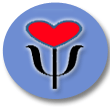I asked a colleague to provide me with some information, which one of my international collaborators asked me to help them with. The information, which was spot on, arrived two working days after I had asked for it. The colleague apologised for her late response! Well, I certainly did not consider the response as late, and many of you wouldn’t either. I thought the colleague’s response (who I do not know well as she is in a different department) was kind and compassionate, and I told her so.
In contrast, we have all experienced the waiting game. I send an email, the person does not respond, I follow the email with a polite reminder a week later, no response….and when after three reminders the person still does not respond, but a response arrives three minutes after my sending the fourth reminder, which is copied to the relevant manager, then I am left wondering: why was the person ignoring me? I know they were not on holidays, and I know they are not busier than me, so what is their motive?
I am telling this story so that I can introduce my topic for this blog: Love Versus Hate. You may not agree with my analysis, but I hope you will agree with my conclusion. So, it is my belief that the first colleague’s response in the above story, came from a place of love. Love motivates us to be compassionate and do good for the sake of good and no other gain. Genuine compassionate acts from one human to another, do not need much thinking and analysis of facts. They are almost spontaneous and they come from the place of love. It makes one feel good when being compassionate to another human being, and that is enough. On the other hand the second colleague’s behaviour most probably came from a place of indifference (the opposite to compassion), spite and/or jealousy, all of which are components of hate. You may think I am exaggerating here and I am using a very strong word, as my example is not so dramatic to deserve the ‘hate’ label. Probably so, nevertheless it does not stop it from being harmful. There are myriad consequences to such harmful (hateful) behaviour, the accumulation of which could end up being explosive.
The corona virus has seen refugees waiting for improvements to their living conditions which could stop the spread of infection to them and their loved ones. Even though the front line workers and volunteers do their best – actions which demonstrate love and compassion- it often feels that the authorities and the ‘strong’ of this world is turning a blind eye – also called indifference. This type of indifference is not out of spite or jealousy, but is value based. When people are not heard, their plight is constantly ignored and their suffering is met with indifference, this can mean one thing: these people are being dehumanised. When dehumanised, they can be placed at the bottom of the human ladder and therefore they can wait and wait, until something catastrophic happens.
My conclusion to this brief blog is that love should always be chosen over hate (common sense you may say). Love is positive, love builds, love nurtures; acts of love will most probably be responded with love. On the other hand, hate is negative, hate destroys, hate drains the goodness in people; acts of hate or indifference will most probably be counter responded by hate, bringing suffering and catastrophes.
Let us choose love for a better world; a world without wars and power games, a world where all humans are equal, a world where natural disasters, such as pandemics, are confronted with all the human ingenuity we can muster, a world that cares for the vulnerable irrespective of the cause of their vulnerability.
Irena Papadopoulos
2nd June 2020
This blog is dedicated to Fiona.


